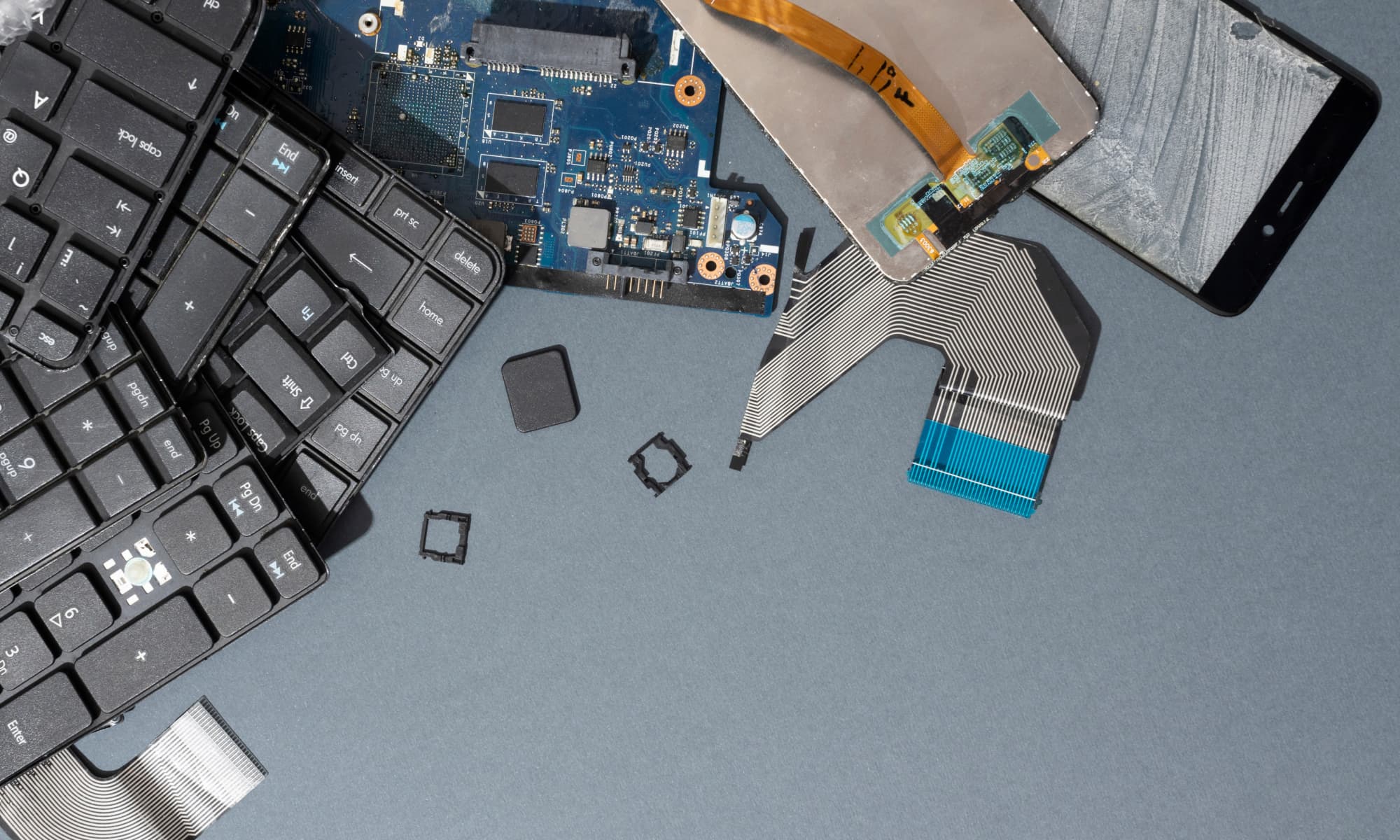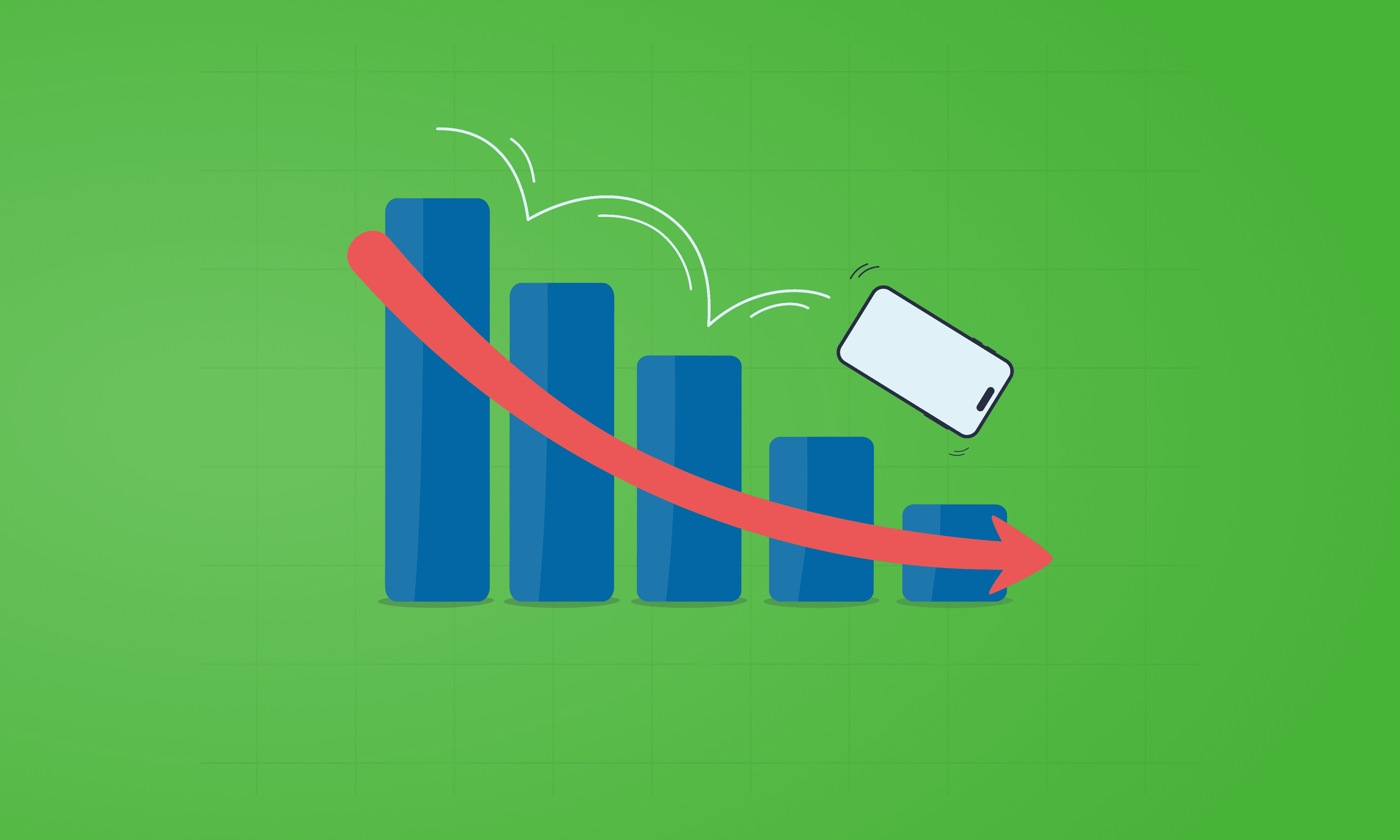Practical advice on how to recycle your electronic gadgets, reduce waste and minimise environmental impact while you're at it.

Written by Yasmin Maagbe, Content and PR Executive | Environment and Consumer Electronics
Last updated on 12 December 2025

By now most people are aware of the damage the planet has endured due to the continuous increase of electronic waste (e-waste). With society progressively becoming more affluent, throwaway culture is thriving in the midst of new technological developments which are feeding this major concern.
For some, recycling electronics can be confusing and challenging. Which is understandable as there are still a few limitations to recycling your electronics, but this guide provides you with practical advice on how to recycle your electronics, reduce waste and minimise environmental impact while you're at it...
First things first, what is e-waste? In simple terms, e-waste is used to describe discarded electronics and unusable electronic items that reached their end of life. These electronics range from home appliances, smartphones, computers, electric toothbrushes, vapes and more. In short, simply anything that needs electricity to work. When our used electronics are not disposed of correctly, it generates e-waste which creates a number of environmental issues including landfill pollution where toxic substances leach into soil and water supplies.
E-waste is not biodegradable and accumulates in the environment, soil, air, water and living things.
TheRoundup.org reports that in 2024, there has been an estimated 347 Mt of unrecycled e-waste on Earth. Do you realise how much this is? To put it in perspective, 347 Mt of e-waste is as much as 2.3 million artic blue whales, and current population varies somewhere between 10,000 and 20,000. This truly highlights the size of the problem.
So as you can see, e-waste is too big of an issue and it won’t disappear on its own. Therefore a shift in how we deal with our used electronics needs to happen, and going forward we’ll stop contributing to growing rates of e-waste accumulating around the world. Ethicalconsumer.org explain that the toxic burden of the products consumed in the West, has been shifted onto the worlds most vulnerable in a systematic way.
There are significant benefits to making the conscious effort of recycling your electronics. Changing how we recycle our electronic items, and how we buy them in the first place, will not only result in a cleaner environment, but in turn it will:
✅ Reduce the need to mine virgin metals (which are finite by the way),
✅ Decrease environmental pollution and waste to landfill,
✅ Recover leftover financial value for consumers,
✅ Encourage sustainability,
✅ Shift from linear to circular economy.
Although the recycling process of electronics is widely encouraged, it is important to be mindful of the items that cannot be recycled from home. You might be asking “Can I put electrical items in my recycle bin?” and we understand your logic, but the truth is that not everything can go in the green recycling bin and certainly not your electronics. So what is electronic recycling?
With electronics, the easy way to remember what shouldn’t go in your household bins is - anything that uses batteries or requires electricity to work. Such items are known as Waste Electrical and Electronic Equipment (WEEE) and by law, will feature a crossed out wheelie bin on them indicating that it must not end up in your bins.
This means that WEEE items that you no longer use or need, should be recycled responsibly by either taking them to specialist recycling facility or dropping them off for recycling through take back schemes. Items that are in good working order can earn you some cash when traded in for refurbishment through sites like Compare and Recycle or you can donate or hand them down for reuse.
Electronics containing mercury or lead require special handling as hazardous waste. Older televisions and monitors pre-1991 may contain mercury, meaning electricals such as these need to be handled with care. Therefore, under no circumstances should you bin any of your electronics and hope for the best.
Ignoring these best practices to recycle electronics has caused serious harm to the environment and will continue to do so if we don’t learn what electronics can be recycled and how to recycle them. Here’s a list of electronics that are generally recyclable:
✅ Smart electronics: mobile phones, tablets, smartwatches, headphones, digital cameras, laptops, computers, monitors, printers, TVs
✅ Batteries and cables
✅ Small appliances: toasters, coffee machines, hoovers, electric kettles, microwaves
✅ Large appliances: fridges, washing machines, dishwashers
✅ Grooming devices: hair dryers, hair straighteners, electric toothbrushes, shavers
✅ Power and garden tools: shredders, lawn-mowers, drills
✅ Christmas tree lights, light bulbs, lamps, torches, smoke alarms.
Have you accumulated a collection of electronics you would like to recycle? The best way to go about it is to follow our 3-step recommendation:
1. Bought a replacement?
Check for trade-in services online which will help you to cash in on your used item or use retailer’s take back scheme for in-store vouchers in exchange.
2. Is it in working order?
Electronic devices that are in working condition can be sold on peer-to-peer marketplaces, handed down to family members or donated to charities.
3. Is it broken?
First of all, consider repairing your broken electronics. This prolongs the useful life of an electrical item and reduces its environmental impact. Alternatively, find a nearby recycling facility that accepts your item for recycling and dispose of it responsibly.
The proper way to dispose of old and used electronics in the UK is to recycle them but where to recycle electronics is the big question. Luckily, there are numerous ways to do this.
These include trade-in services, take back schemes, specialist recycling providers, and local council collection services. All of these are available across the country and here are four easy ways to dispose of electronics in the UK.
Want to recycle your mobile phone, tablet, smartwatch, games console, or digital camera? It doesn't matter if it's broken or in good working condition. Compare and Recycle makes it easy to trade it in and you'll get money directly into your bank account.
We’ll help you find the best recycler to send your device to and all you have to do is pop it in the post. Once you receive your payment, you can put the money towards your next gadget or spend it however you please.
For easier navigation, click the links below to visit different item categories that you can recycle on our comparison site:
✅ Recycle your Apple smartwatches
✅ Recycle your digital cameras
You’ve likely heard the saying “One man’s trash is another man’s treasure”, so always check first if you can sell your electronic devices. This can either be through a comparison site, manufacturer’s or retailer’s buyback service or privately on a peer-to-peer marketplace. This way you will be able to get money back for something you no longer use, like that iPad from 2014 for example, and you will do the right thing encouraging reuse. Just remember to wipe your data off before selling your device as your private data should stay private.
The WEEE regulations now require retailers and manufacturers to offer a way for customers to recycle their old electronics. Having this in place ensures that the e-waste is disposed of in an environmentally friendly way. There are quite a few retailers that offer free drop-offs who additionally give customers the option to recycle their old device in exchange for an in-store voucher.
Some stores provide pick-up services for large appliances, such as washing machines and fridges. This is when you purchase a new appliance from them. Retailers providing initiatives like this, encourages customers to responsibly dispose of their electronics at the time of purchasing a new one.
Below is a list of retailers that offer electronics recycling services:
Currys Recycling - Currys offer a recycling service that allows customers to either bring in their old used appliances in store or if it's too big, Currys will collect it for a small fee. As part of their “Cash for Trash” initiative, customers can return any old electrical devices for recycling (even if it wasn’t originally purchased from Currys and you’re not buying anything new) and receive at least a £5 voucher to spend in store.
Robert Dyas Recycling - Robert Dyas will recycle your e-waste for free when you buy a replacement product through them. You will have 28 days to return your replaced electronic item, and proof of purchase.
Dyson Recycling - Similarly to other retailers, Dyson offers to recycle your old electronics when you purchase a new one from them. You can return your old item for recycling within 28 days of purchase.
John Lewis Recycling - John Lewis offers a number of recycling services ranging from clothing, beauty products, to electronics. You can take your small electronics to any of their stores and they will recycle it free of charge, even if you didn’t purchase the device from John Lewis. For larger appliances however, their recycling service will accept a like-for-like equivalent when you buy an item from one of their stores or online.
Argos Recycling - will deliver your new item and as part of the same service, disconnect your old appliance and take it away with any packaging to be recycled for free. Customers can recycle their electrical items in-store when having purchased a replacement within 28 days. You can also trade in your Apple Mac computers through [Argos trade-in scheme](https://argos-tradein.co.uk).
AO - For a £30 fee AO offers a Collect & Recycle service which you can book to dispose of your bulky electronics such as TVs, fridges, cookers and more. You don’t need to buy anything new from AO to use this service, but if you are then there’s Remove & Recycle which can be added to your shopping basket for free if you’re purchasing a new replacement item on ao.com.
Boots Recycling - Boots also launched a service to help you recycle your electricals. They are taking back old devices on a like-for-like basis and will recycle it no matter where you bought it from. For example, if you’re buying a pair of hair straighteners from Boots, make sure you bag up your old pair and hand it over for recycling!
People may not be aware that their items can be recycled and reused. For instance, they can be used to make life-saving equipment or children's playgrounds. So, if you’re asking whether it is worth recycling your electronics, our response is “Absolutely!”. All you need to do is a quick search about that particular retailer’s take back scheme and you will be doing the right thing for the environment by recycling raw materials.
Another way to dispose of your big or small electrical item, is to check your council’s website for a WEEE recycling service. Usually councils will have a partnership in place with local recycling facilities to help residents recycle unwanted electronic items and reduce amounts of waste. It might be the case that there is a fee involved to book these waste collection services from your home.
If you’d rather take the item to a recycling facility nearby yourself, use Recycle Your Electricals or Recycle Now directories to find a drop off location by running a quick postcode search and don’t forget to read the instructions as some recycling facilities will require you to book a time slot in advance or show proof of address.
Did you know that you can also donate your working electronics to charity shops supporting underprivileged communities? This is a great way to practice reuse while also funding their cause, but which charity shops take electrical items?
Below are a few charities in the UK that accept electronic items as donations:
Oxfam - Oxfam helps to turn mobile phones, gadgets and computers into money with proceeds going towards ending poverty around the world. If they can be refurbished, they’ll be packaged and put to good re-use.
British Heart Foundation - The British Heart Foundation accepts any functioning electricals as a donation. You can post your donation for free or drop off to your local shop donation point.
Get Well Gamers - Any video games and game consoles you can donate to Get Well Gamers. Each piece of technology is distributed around 140 hospitals and organisations in the UK.
Whilst recycling your old or unused tech is not the done thing for the majority of consumers at the moment, you can be one of the inspiring individuals who are initiating change in the electrical recycling space. By following this guide, you are joining the revolution and making a conscious effort to ensure your old electronics do not end up in landfills.
It's important to remember that recycling is a collaborative effort, and we can all do our part. Whether you are an individual, a community or a household there are many ways to get involved and make a difference. From taking advantage of trade in services, donating to charities that refurbish and redistribute electronics, to working with local councils and waste management companies to ensure proper disposal. Just remember, every little bit counts!

The iPhone used to define innovation. Now every new model feels the same. Is Apple’s story running out of pages?

See which Apple, Samsung and Google phones hold their value best over the first and second year on the market.
With Pixels becoming a decent contender for your upgrade choice, we’ve crunched the numbers to reveal depreciation patterns of Google Pixel phones.